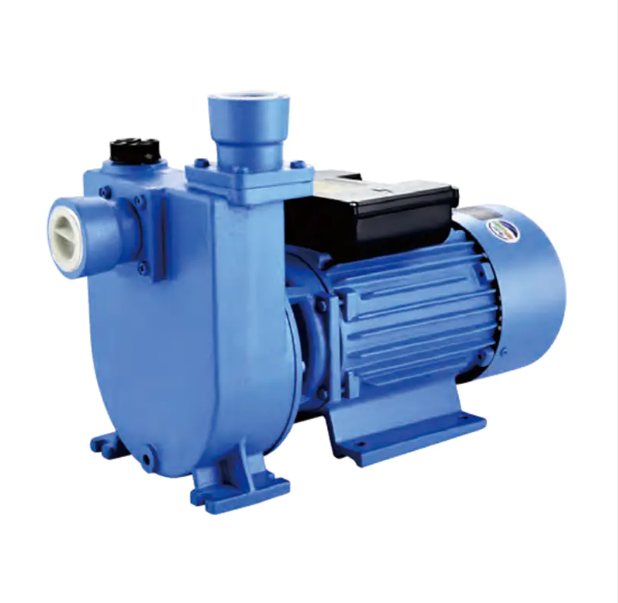A centrifugal water pump is one of the most widely used devices for moving water in residential, agricultural, and industrial settings. Its design and operational principles make it suitable for a range of applications where efficient water transfer is required. The centrifugal water pump uses the centrifugal force generated by a rotating impeller to push water outward from the pump's center, creating flow and pressure that move the water through pipes or channels.
The working mechanism of a centrifugal water pump involves water entering the pump casing near the rotating impeller's center. As the impeller spins, it imparts kinetic energy to the water, pushing it toward the outer edge of the impeller. This movement increases the water's velocity and pressure, enabling it to flow out of the pump and through the connected piping system. The simplicity of this process makes the centrifugal water pump efficient and reliable.
One key feature of the centrifugal water pump is its ability to handle large volumes of water at relatively low pressure. This makes it ideal for applications such as irrigation, water supply, and drainage systems. Farmers use centrifugal pumps to irrigate fields, while municipal water systems rely on them to distribute water across cities and towns. The pump's design allows for continuous operation with minimal maintenance, which is beneficial in demanding environments.
The versatility of the centrifugal water pump is evident in its wide range of sizes and configurations. Smaller models are suitable for household use, such as boosting water pressure in homes or emptying flooded basements. Larger industrial pumps are capable of moving thousands of gallons of water per minute, meeting the needs of factories, power plants, and large agricultural operations. This flexibility makes the centrifugal water pump a common choice across many sectors.
Material selection for a centrifugal water pump is important to ensure durability and performance. Pump components like the impeller and casing are often made from stainless steel, cast iron, or specialized plastics. These materials provide resistance against corrosion and wear caused by water and any suspended particles. A well-built centrifugal water pump can operate reliably even under challenging conditions.
Energy efficiency is a consideration for users of a centrifugal water pump. Because the pump uses rotational energy to move water, it can be powered by electric motors, diesel engines, or other prime movers. The efficiency of the motor and the pump design together influence the overall energy consumption. Choosing an appropriately sized pump helps avoid wasted energy and reduces operational costs.
Installation and maintenance of a centrifugal water pump are generally straightforward. The pump requires proper alignment with the motor and secure mounting to prevent vibrations during operation. Routine maintenance typically involves checking seals, bearings, and impeller condition to prevent leaks and maintain smooth operation. Many pumps are designed with easy access to components, facilitating inspection and repairs.
Safety is also important when working with a centrifugal water pump. Protective guards around the rotating parts, proper electrical connections, and pressure relief mechanisms help reduce the risk of accidents. Operators should follow recommended guidelines to ensure safe use, especially when pumps handle water containing chemicals or abrasive materials.
The cost-effectiveness of the centrifugal water pump contributes to its popularity. Compared to other types of pumps, centrifugal models often have lower upfront costs and simpler designs, reducing both purchase price and maintenance expenses. Their ability to perform well in diverse applications without complicated controls makes them a practical option for many water management needs.
The centrifugal water pump is a reliable and adaptable device used across multiple industries and applications. Its efficient operation, ability to handle large water volumes, and relative ease of maintenance make it suitable for tasks ranging from household water supply to large-scale irrigation. Understanding the principles and benefits of the centrifugal water pump can help users select the right pump for their specific requirements.

